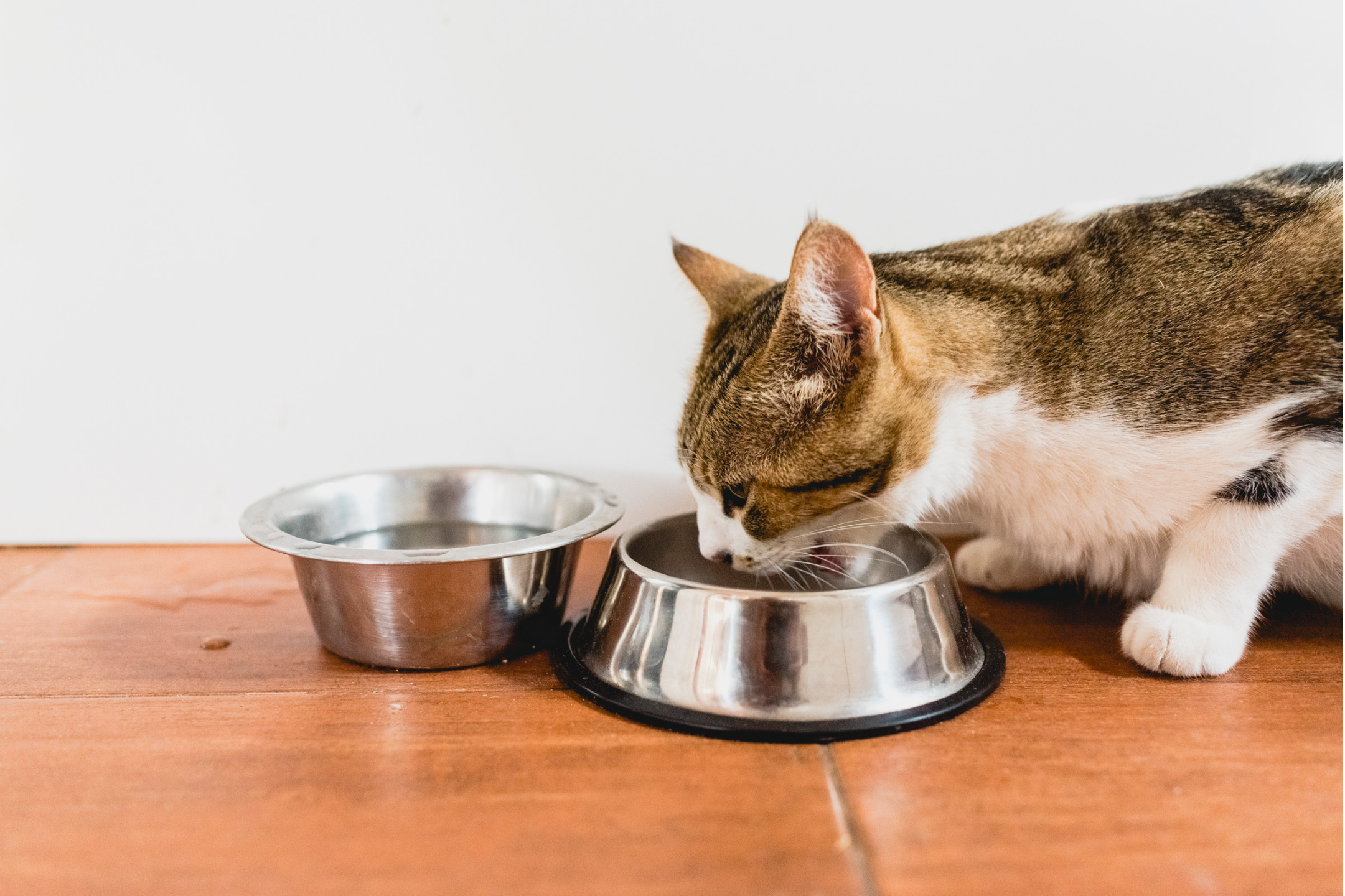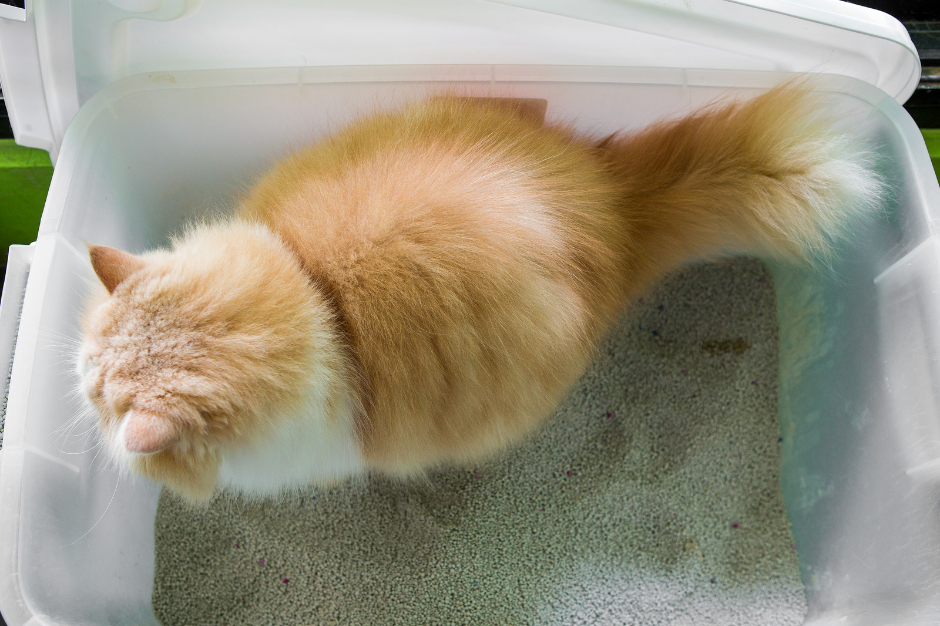As a pet parent, there are few things as distressing as discovering blood in your cat’s poop. This is a cause for concern and can indicate several underlying health issues. In this blog, we will discuss the possible causes of blood in a cat’s poop and how to prevent it from happening.
Potential Causes of Blood in Cat’s Poop
It’s essential to understand that blood in a cat’s poop is not a disease but a symptom of an underlying health condition. There are several potential causes of blood in a cat’s stool, including:
Parasites
One of the most common causes of blood in a cat’s poop is the presence of parasites. Intestinal parasites, such as hookworms and roundworms, can cause irritation and inflammation in the cat’s intestines, leading to bleeding. These parasites can be contracted through contact with contaminated soil or other infected animals. Other parasites, such as coccidia and giardia, can also cause diarrhea and bleeding in cats.
Inflammatory Bowel Disease
Inflammatory bowel disease (IBD) is when the cat’s immune system attacks the lining of its digestive system, causing inflammation and bleeding. This can lead to chronic diarrhea, vomiting, and weight loss. IBD is a complex condition, and the exact cause is unknown.
Food Allergies
Food allergies can also cause blood in a cat’s poop. Some cats may be allergic to certain ingredients in their food, such as beef, chicken, or grains. This can lead to inflammation in the cat’s digestive system, causing diarrhea, vomiting, and bleeding. If your cat has food allergies, it is crucial to identify the allergen and switch to a diet that does not contain the offending ingredient.
Colitis
Colitis is a condition where the cat’s colon becomes inflamed, causing diarrhea, mucus, and blood in the stool. Various factors, including bacterial infections, parasites, food allergies, and stress, can cause colitis. Treatment for colitis usually involves identifying and treating the underlying cause and providing supportive care to help the cat recover.
Cancer
Unfortunately, blood in a cat’s poop can also be a sign of cancer. Colorectal cancer, lymphoma, and other types of cancer can cause bleeding in the cat’s digestive system. If your cat has blood in its stool and is also experiencing weight loss, lethargy, or loss of appetite, it is vital to take them to the vet for a thorough examination.
Trauma
Sometimes, blood in a cat’s poop may result from trauma. If the cat has ingested a foreign object, such as a sharp bone or piece of plastic, it can cause damage to the digestive system and lead to bleeding. Additionally, if the cat has been hit by a car or suffered some other type of injury, it can cause internal bleeding and other health issues.
Anal Gland Issues
Finally, blood in a cat’s poop may result from anal gland issues. Anal glands are small glands near the cat’s anus that secrete fluid. If these glands become blocked or infected, they can irritate and bleed in the cat’s digestive system. This can be treated by expressing the glands and administering antibiotics.
If your cat is experiencing blood in its stool, it is vital to take them to the vet for a thorough examination. Your vet can help determine the underlying cause of the bleeding and develop an appropriate treatment plan.
How to Prevent Bloody Cat Poop

Prevention is always better than cure, and there are steps you can take to prevent blood in your cat’s poop. Here are some tips:
-
Provide a healthy diet.
A healthy diet is crucial for your cat’s overall health and well-being. Feeding your cat a high-quality, balanced diet can help prevent various health issues, including bloody stool. Ensure your cat’s diet is rich in protein and fiber and free from artificial additives or fillers. Avoid feeding your cat table scraps, which can upset their digestive system and lead to gastrointestinal issues.
-
Keep your cat hydrated.
Cats require plenty of water to maintain digestive health. Dehydration can lead to constipation, which can cause straining during bowel movements and lead to bloody stools. Ensure your cat has access to clean, fresh water at all times. Add wet food to your cat’s diet.
-
Exercise your cat.
Regular exercise is vital for your cat’s digestive health. Exercise helps stimulate the digestive system and promotes regular bowel movements. Playtime is a great way to get your cat moving and can help prevent constipation and bloody stools.
-
Maintain good litter box hygiene.
Keeping your cat’s litter box clean and hygienic is essential for their health. A dirty litter box can lead to various health issues, including bloody stools. Make sure to scoop the litter box daily and replace the litter regularly. Avoid scented litter or harsh cleaning products, as this irritates your cat’s sensitive digestive system.
-
Prevent hairballs
Hairballs are a common issue in cats and can lead to bloody stools. Hairballs occur when cats ingest hair during grooming, which can accumulate in their digestive system and cause blockages. To prevent hairballs, brush your cat regularly to remove loose hair and provide them with hairball prevention treats or supplements.
-
Watch for signs of stress.
Stress can have a significant impact on your cat’s digestive health. If your cat shows signs of stress, such as excessive grooming or hiding, it can lead to gastrointestinal issues, including bloody stools. Try to identify the source of your cat’s stress and take steps to address it, such as providing a quiet space or using calming aids.
-
Schedule regular check-ups with your veterinarian.
Regular veterinary check-ups are essential for your cat’s overall health and can help identify any underlying health issues causing bloody stools. Your veterinarian can perform a physical exam, run diagnostic tests, and provide treatment options to help prevent or manage bloody stools.
Following these steps can help prevent bloody stools and promote your cat’s digestive health. Remember, if you notice any changes in your cat’s bowel movements, it is crucial to seek veterinary attention immediately.
Conclusion
Blood in a cat’s poop is a symptom of various gastrointestinal issues. It can be a mild problem like food allergies or a more serious one like cancer. In any case, it’s best to bring your cat to the vet for an examination and proper diagnosis, so you can know how to treat your cat’s condition properly.















